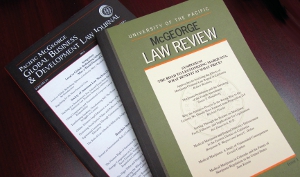Document Type
Article
Publication Date
2012
Abstract
The U.S. Supreme Court's jurisprudence interpreting the Federal Arbitration Act (FAA) is incoherent in a respect that is fundamental yet not quite captured in existing legal literature. Specifically, in determining the core question of whether any particular dispute should be resolved by arbitration under the FAA, the Court has stubbornly relied on the concept of the parties' “intent” on the matter. “Intent,” however, is at once elusive and polymorphic. It is elusive because the parties will often not have considered whether the particular issue is arbitrable, much less who—court or arbitrator—should decide that preliminary question. It is polymorphic as rendered by the Court, which has veered from looking for evidence of actual, conscious intent to constructive intent, and also from seeking out the intent to be bound procedurally by arbitration to the intent respecting the substantive terms of the arbitration agreement. These different senses of intent can and do conflict, but the careful differentiation thereof is masked by the Court's treatment of “intent” as a monolithic concept.
To illustrate the distorting influence on FAA jurisprudence, this Article dissects Supreme Court opinions in two broad sections of the FAA case law, both of which illustrate vividly the deforming effect of intent on it. The first concerns the carving up of jurisdiction between courts and arbitrators that goes to the foundations of the FAA, namely, the question of which decisionmaker—court or arbitrator—should determine whether the underlying dispute is arbitrable. The second is a controversy of more recent provenance that already has striking implications for all manner of consumer and employment contracts, specifically, the question concerning the availability of class arbitration. The result of this confused exercise is a tottering FAA case law built on ever more rarefied abstractions of “intent” that are little anchored in reality, yet impact in a very real way a broad range of contracts, including countless consumer and employment agreements. Thus, a complete and accurate account of the Court's jurisprudence under the FAA is not possible without a close scrutiny of the role of “intent,” a concept that is ultimately wanting.
Publication Title
Fla. St. U. L. Rev.
Volume
40
First Page
165
Recommended Citation
Jarrod Wong, Arbitrating in the Ether of Intent, 40 Fla. St. U. L. Rev. 165 (2012).



